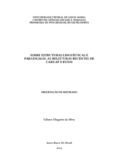| dc.creator | Silva, Gilson Olegario da | |
| dc.date.accessioned | 2014-07-22 | |
| dc.date.available | 2014-07-22 | |
| dc.date.issued | 2013-04-26 | |
| dc.identifier.citation | SILVA, Gilson Olegario da. ON LINGUISTIC STRUCTURES AND PARADIGMS: THE RECENT REINTERPRETATION OF CARNAP AND KUHN. 2013. 148 f. Dissertação (Mestrado em Filosofia) - Universidade Federal de Santa Maria, Santa Maria, 2013. | por |
| dc.identifier.uri | http://repositorio.ufsm.br/handle/1/9122 | |
| dc.description.abstract | e recent literature in philosophy of science has been reassessing the positivist legacy.
One of the items on the agenda is the alleged opposition between the theses put forth
by positivists such as Carnap and the so-called post-positivists , such as Kuhn. Although the
laer came to be viewed as a critic of several important positivist theses, more recent authors
such as Friedman, Reisch, Earman, Irzik and Grünberg, maintain that several of the most characteristic
theses of the Kuhnian view of science were already present in Carnap s philosophy.
Against this kind of reading, authors such as Oliveira and Psillos argue that within Carnap s
philosophy there is no place for Kuhnian theses like incommensurability, holism or the theoryladenness
of observations. e first article of this dissertation presents the reasons for each of
those readings and assesses them having in view the perspectives from which they are offered.
It argues that it is possible to show that some aspects of Kuhn s thesis have a counterpart
in the works of Carnap, although those theses vary in importance for Carnap and Kuhn. e
second article presents aspects that can be seen as antagonistic in the two views, namely, the
conceptions that relate to that distinction made famous by Reichenbach between contexts of
discovery and justification. | eng |
| dc.description.sponsorship | Coordenação de Aperfeiçoamento de Pessoal de Nível Superior | |
| dc.format | application/pdf | por |
| dc.language | por | por |
| dc.publisher | Universidade Federal de Santa Maria | por |
| dc.rights | Acesso Aberto | por |
| dc.subject | Kuhn. Carnap | por |
| dc.subject | Holismo | por |
| dc.subject | Revoluções científicas | por |
| dc.subject | Incomensurabilidade | por |
| dc.subject | Frameworks linguísticos | por |
| dc.subject | Léxico estruturado | por |
| dc.subject | Contexto de descoberta | por |
| dc.subject | Contexto de justificação | por |
| dc.subject | Kuhn | eng |
| dc.subject | Carnap | eng |
| dc.subject | Holism | eng |
| dc.subject | Scientific revolutions | eng |
| dc.subject | Incomensurability | eng |
| dc.subject | Linguistic frameworks | eng |
| dc.subject | Strutural lexicons | eng |
| dc.subject | Context of discovery | eng |
| dc.subject | Context of justification | eng |
| dc.title | Sobre estruturas linguísticas e paradigmas: as releituras recentes de Carnap e Kuhn | por |
| dc.title.alternative | On linguistic structures and paradigms: the recent reinterpretation of Carnap and Kuhn | eng |
| dc.type | Dissertação | por |
| dc.description.resumo | A literatura recente em filosofia da ciência vêm reavaliando o legado positivista. Um
dos itens dessa reavaliação é a suposta oposição entre as teses defendidas por positivistas como
Carnap e os chamados pós-positivistas , como Kuhn. Embora este último tenha sido percebido
como um crítico de diversas teses positivistas importantes, autores mais recentes como Friedman,
Reisch, Earman, Irzik e Grünberg, sustentam que várias das teses mais características da
concepção kuhniana da ciência já estariam presentes na filosofia positivista. Contra esse tipo
de leitura, autores como Oliveira e Psillos argumentam que não há na filosofia de Carnap e
outros positivistas lugar para teses como a da incomensurabilidade, do holismo ou da impregnação
teórica das observações, características das concepções kuhnianas. O primeiro artigo
desta dissertação apresenta as razões para cada uma dessas leituras e avalia cada uma tendo
em vista a perspectiva a partir da qual elas são oferecidas. Defende que é possível mostrar
que algumas teses kuhnianas têm uma contraparte já nos trabalhos de Carnap, muito embora
tais teses ocupem posições e importâncias diferenciadas em Carnap e Kuhn. O segundo artigo
apresenta aspectos que podem ser vistos como antagônicos nas filosofias de ambos, a saber, as
concepções que dizem respeito àquela distinção feita famosa por Reichenbach entre contextos
de descoberta e justificação. | por |
| dc.contributor.advisor1 | Severo, Rogério Passos | |
| dc.contributor.advisor1Lattes | http://buscatextual.cnpq.br/buscatextual/visualizacv.do?id=K4728874D6 | por |
| dc.contributor.referee1 | Loparic, Zeljko | |
| dc.contributor.referee1Lattes | http://lattes.cnpq.br/2303212419937367 | por |
| dc.contributor.referee2 | Carvalho, Eros Moreira de | |
| dc.contributor.referee2Lattes | http://lattes.cnpq.br/9199277921479932 | por |
| dc.creator.Lattes | http://lattes.cnpq.br/9944093011514978 | por |
| dc.publisher.country | BR | por |
| dc.publisher.department | Filosofia | por |
| dc.publisher.initials | UFSM | por |
| dc.publisher.program | Programa de Pós-Graduação em Filosofia | por |
| dc.subject.cnpq | CNPQ::CIENCIAS HUMANAS::FILOSOFIA | por |


